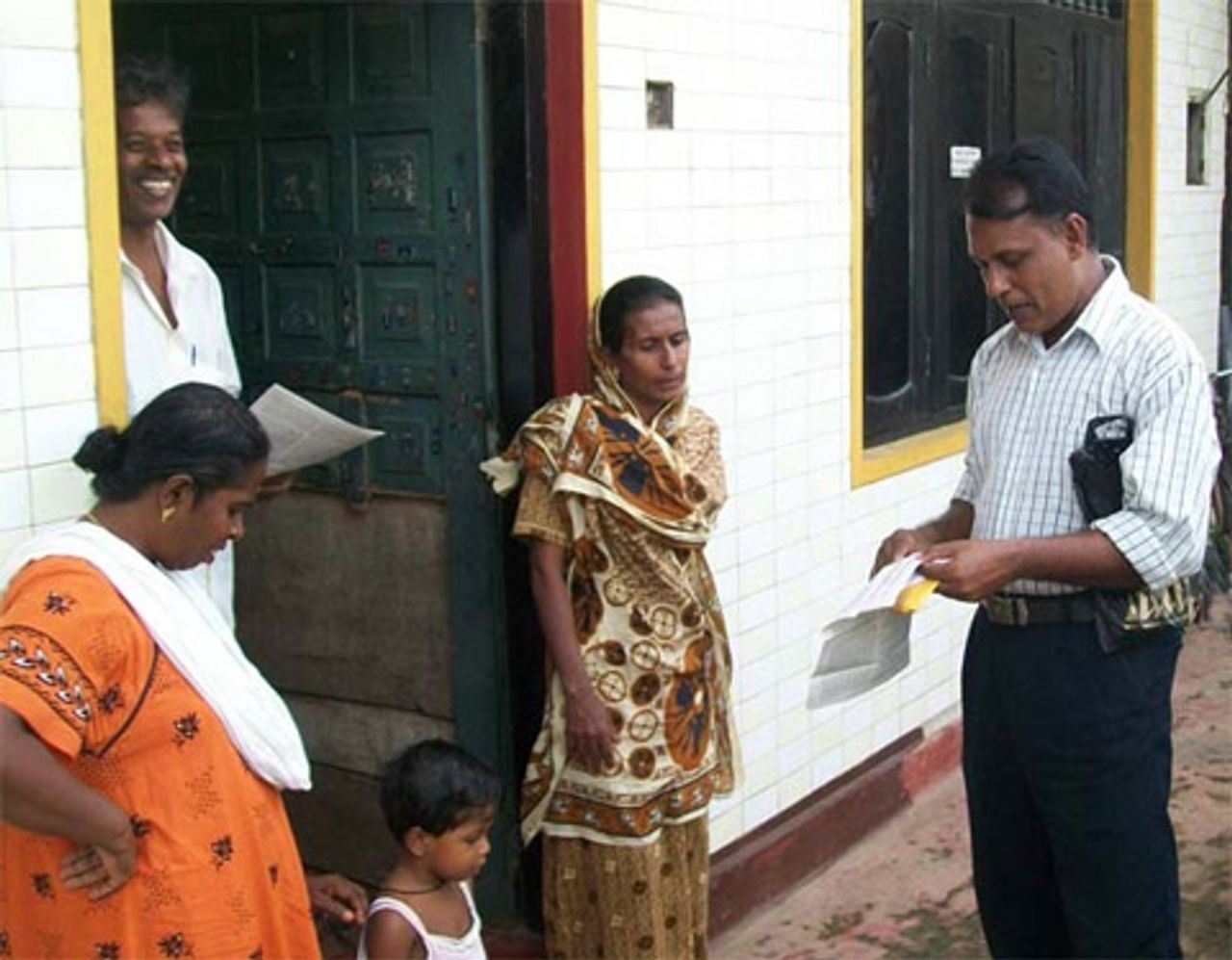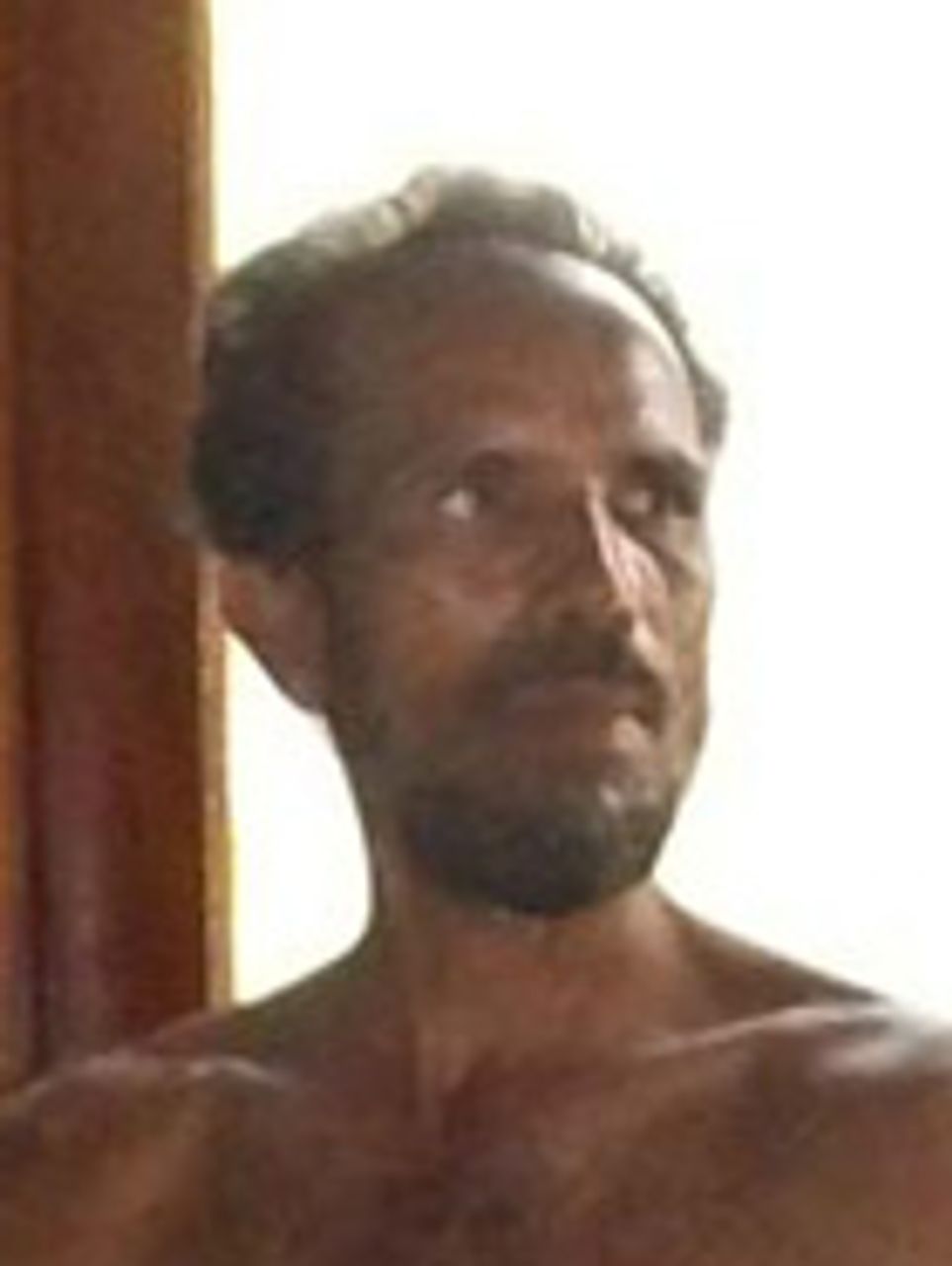Members and supporters of the Socialist Equality Party (SEP) visited workplaces and working class neighbourhoods in and around Galle during their campaign for the SEP’s presidential election meeting held in the city on January 3. With a population of around 100,000, Galle is a major working class centre, 115 kilometres from Colombo, and the capital of Sri Lanka’s southern province.
At Galle harbour, workers told us how the authorities, with the assistance of the trade unions, are making workers bear the burden of declining profits. Last year the Sri Lankan Ports Authority started construction work on a yacht marina in the harbour for tourists. At the same time, citing a reduction in the number of commercial ships coming to Galle port, the agency was drastically cutting the workforce.
A harbour worker said: “The authorities are preparing to transfer 300 out of 700 workers to Colombo Port. We oppose any transfers, but the trade unions are silent. Last year workers started a work-to-rule campaign. We wanted an 8,000-rupee ($US75) wage increase. The unions reduced the demand to 5,000 rupees, citing the difficulties of the port authority. Then the unions agreed to a 3,000-rupee offer. Workers are disgusted with the union leaders.”
The worker explained that some of his colleagues thought they should vote in the presidential election for the main opposition candidate, General Sarath Fonseka, against the incumbent, Mahinda Rajapakse. “That is not because they trust Fonseka, but just as a protest,” he commented.
An SEP team visited the Mahamodara Waththa housing scheme. We found that the roads were tiny and damaged, and the drains were blocked. A common sentiment among the residents was that “whoever comes to power the situation will be same”.
 Galle residents speak with SEP campaigner
Galle residents speak with SEP campaignerA female garment worker, 47, said: “My husband is a fisherman. He works on a boat owned by someone else. His salary depends on the fishing catch. Some days he gets nothing. I have worked in a garment factory in the Koggala Free Trade Zone since last year. My monthly salary is 6,750 rupees. To obtain the attendance allowance, I have to go to work every day.
“We got nothing from any of the politicians. We didn’t get any relief after the war was over. The prices of goods are rising daily. Look at our houses and the surroundings! When the water level in the river rises, the toilets overflow.”
A Muslim woman explained the difficulties she faced finding a school for her child. “We can’t send our child to a good school, although we have all the neccessary documents. We would have to pay at least 100,000 rupees for a good school, so we are compelled to send our child to a school with less facilities. There are so many children in this village who are not going to school because their parents are very poor.”
The woman wanted to educate her child in the Sinhala language rather than her own language, Tamil, because of racial discrimination against Tamils. “In this area Sinhalese and Muslims live peacefully but the rulers are trying to divide people.”
A Tamil youth from Badulla in Uva Province said: “We came to Galle because we have no jobs in our area. We are facing many difficulties and harassments. Although the war is over, we can’t move freely. Our national identity cards are with the hotel owner, so we can’t go out.”
A hotel worker related his experience with formerly Trotskyist Lanka Sama Samaja Party (LSSP). He was an LSSP member for some time in the 1970s but the LSSP had joined the capitalist Sri Lanka Freedom Party (SLFP) in a coalition government and praised the SLFP. He and many others then joined the SLFP, hoping to win rights for workers.
The hotel worker added that regardless of whether Rajapakse or Fonseka took office, “we don’t think any of our problems will be resolved. So we have decided not to cast our votes for any party this time. The LSSP betrayed us. As you say, we need a workers’ and peasants’ government to resolve our problems. That is a difficult task. But our experiences show no other way to get rid of our problems.”
Piyasiri, 68, a retiree who had worked at Hayleys Company for 40 years, said: “When I retired I got only 200,000 rupees from the provident fund. Rajapakse promised many things but we have got nothing. Rajapakse and Fonseka are boasting of their war victory. They did not go to the battlefields. The poor youth sacrificed their lives.
“Although the war is over, the problems of the Tamil minority have remained unresolved. If the rulers of this country had a genuine interest in solving the problems of Tamil people, there would be no war.”
However, like a considerable number of working people, Piyasiri had illusions that opposition candidate Fonseka represented an alternative to Rajapakse, or at least a “lesser evil”, despite his record as the country’s top general who ruthlessly prosecuted the war under Rajapakse.
Piyasiri said Fonseka should be supported “because we need some change”. He clung to his position despite a lengthy discussion. When SEP supporters explained the party’s socialist program and perspective against both Rajapakse and Fonseka, he agreed that it was correct. But he wanted “some change at this moment”.
Mohamad Saroof, 44, who does day-to-day odd jobs, told us: “I earn about 600 rupees per day but it is inadequate. Governments come and go, but the conditions of the people go from bad to worse. Not just in Sri Lanka but everywhere in the world, people are suffering from wars and poverty. See what is happening in Iraq, Gaza and Afganistan. Every day they bomb. Hundreds die. I hate racism. So I hate racist parties. The Muslim Congress does not stand for poor people. I will vote for neither Rajapakse nor Fonseka. I have to think about whom to vote for.”
 Nazeem
NazeemS.M.M. Nazeem, 54, was severely affected by the Indian Ocean tsunami in December 2004. “After five years we are in the same situation,” he explained. “Before the tsunami we lived in a small hut. Then my wife went to the Middle East to earn some money to build a house. We built a small house but had to leave because the land was requistioned for a road. The government paid us only 250,000 rupees. The land they gave us was low and we had to spend thousands of rupees to fill it.
“I collect scrap steel and sell it. It is difficult to manage our expenses. So my wife went abroad again. During election campaigns, politicians come and give promises. The JVP [Janatha Vimukthi Peramuna] is only talking. This time they join with one party and next time with another party. The Muslim Congress does not care for us. So why should we vote for them?”
